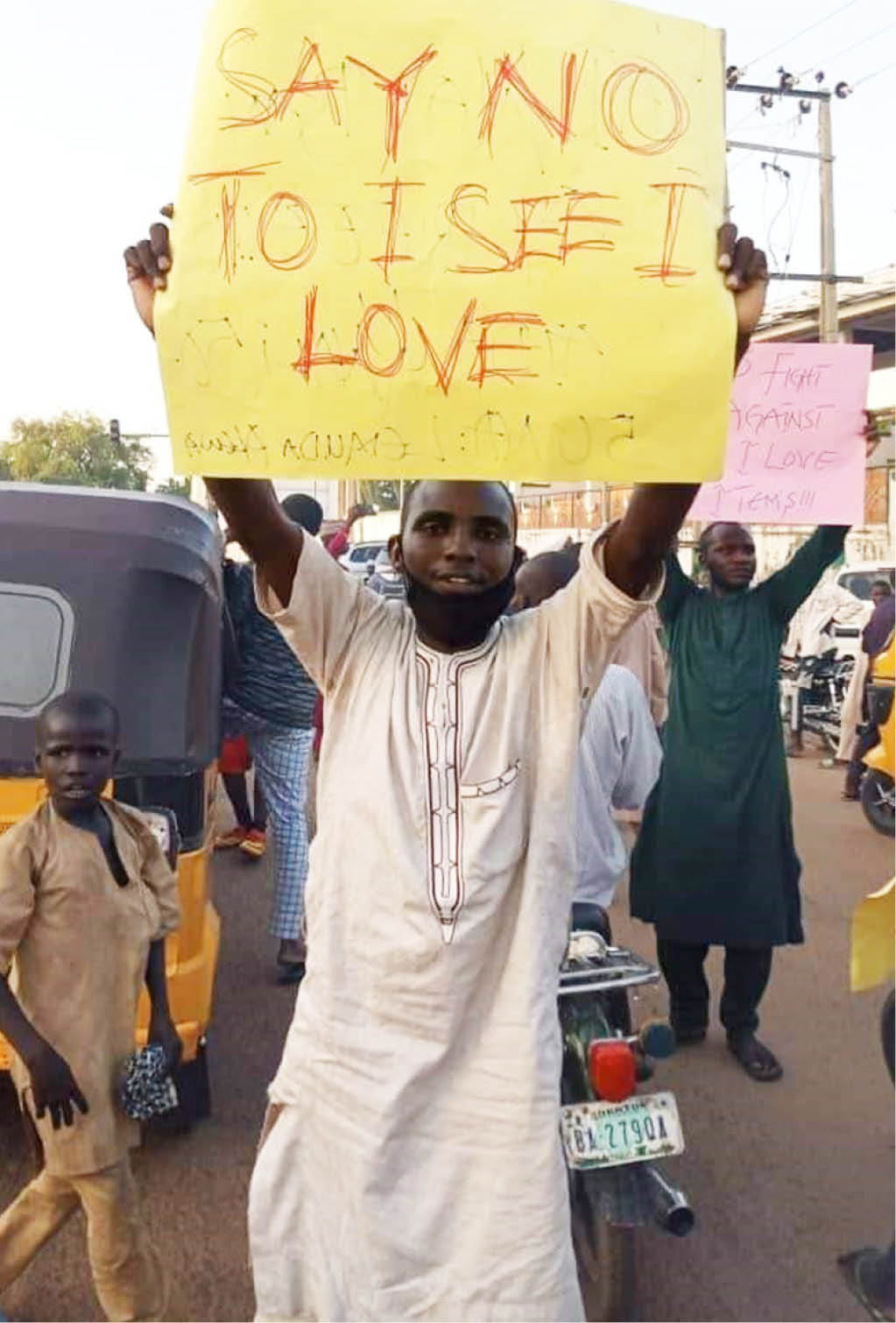Numerous commentators had sounded horrified that amidst the youth-led EndSARS protest, young men in Sokoto were demonstrating against something else.
To these writers, the protesting Sokoto youths were unconcerned and insensitive to the all-important issue of police brutality in Nigeria.
But I disagree, and actually find these comments unfair. What happened in Sokoto clearly shows the beauty of a federation. In a truly federal setting, the units that make up the nation-state are free to pursue their different aspirations the way they deem fit.
No section must lord it over the others or demand that they agitate for the same things, at the same time. So to me it’s a welcome development that young men in Sokoto believe that what worries them most, and is worth protesting about, is the introductory marriage proposal gift or ‘Na gani ina so’ literally “I see, I like’ gift.
In Kano, I grew up knowing the same thing as ‘Kayan zance’ or courtship dues. It’s usually presented when a young man feels convinced that the lady is really ‘the one’ and has decided to formally indicate his intentions. Kayan zance later changed to ‘Kudin tambaya’ or enquiry fees, which is a monetary gift, formally presented by family of the intending groom to indicate their interest. It serves the same purpose as kayan zance but makes things a little easier for the groom, because it saves him and his family the task of taking bridal suitcases twice.
Before money was accepted as introductory gift, the groom had to take suitcases full of clothes, shoes and bags, jewelry and cosmetics etc as kayan zance; and then later a bigger portion of what was taken earlier as ‘kayan lefe’. The kayan lefe’ becomes due when his proposal is accepted, before the wedding commences.
I began to hear the introductory gifts being called ‘Na gani ina so’ long after my own marriage and had no idea where the new phrase came from. Now that Sokoto youths were even on the streets against it, may be ‘Na gani ina so’ is a Sokoto creation.
But wherever the phrase originated from, the young men’s grievance really deserves to be looked into. I know that several times in the past, in parts of Kano and Jigawa states, traditional rulers and even local government officials had tried to regulate wedding expenses by stipulating dowry amount and banning the non-obligatory gifts presentation. They attributed the inability of eligible young women to find suitors then, to the high cost of pre-wedding gifts. They argued that such gifts were not necessary because they were not compulsory in a marriage.
I don’t know how successful those attempts to curb wedding expenses were. But I don’t remember seeing any young men demonstrating to have them removed. Which is why I believe that the ‘I see, I love’ protests, in Sokoto should be viewed seriously.
These are young men obviously interested in getting married and lawfully practicing the Sunnah of Prophet Muhammad SAW. They should be encouraged and helped. What they see around them daily, are older men taking more wives because they could afford whatever is demanded of them as pre-wedding gift, while they themselves could only see and lose.
It’s high time the state government and traditional rulers put heads together to find a solution the problem of aspiring grooms who can’t afford ‘I see, I love’ dues. They certainly need every help they can get to make them settle down to a decent family life. Parents must be enlightened to accept only what is necessary in marriage, like the dowry and a few gifts and waive off all the other stuff that make marriages so expensive to ordinary young men.
In a state where a paedophile homosexual was given a slap-on-the-wrist sentence for defiling several young boys, it’s certainly heartening to know that lots of other young men are fighting for the chance to live a decent family life by lawfully practicing the Sunnah of RasulilLah SAW.
Here is hoping that the next time they troop to the streets, it is to protest a judgement as crazy and unfair as the one that sentenced one Lawali Bala to five years in prison, or the option of a fifty thousand naira fine, for luring and sodomising 18 boys in the same state.

 Join Daily Trust WhatsApp Community For Quick Access To News and Happenings Around You.
Join Daily Trust WhatsApp Community For Quick Access To News and Happenings Around You.


